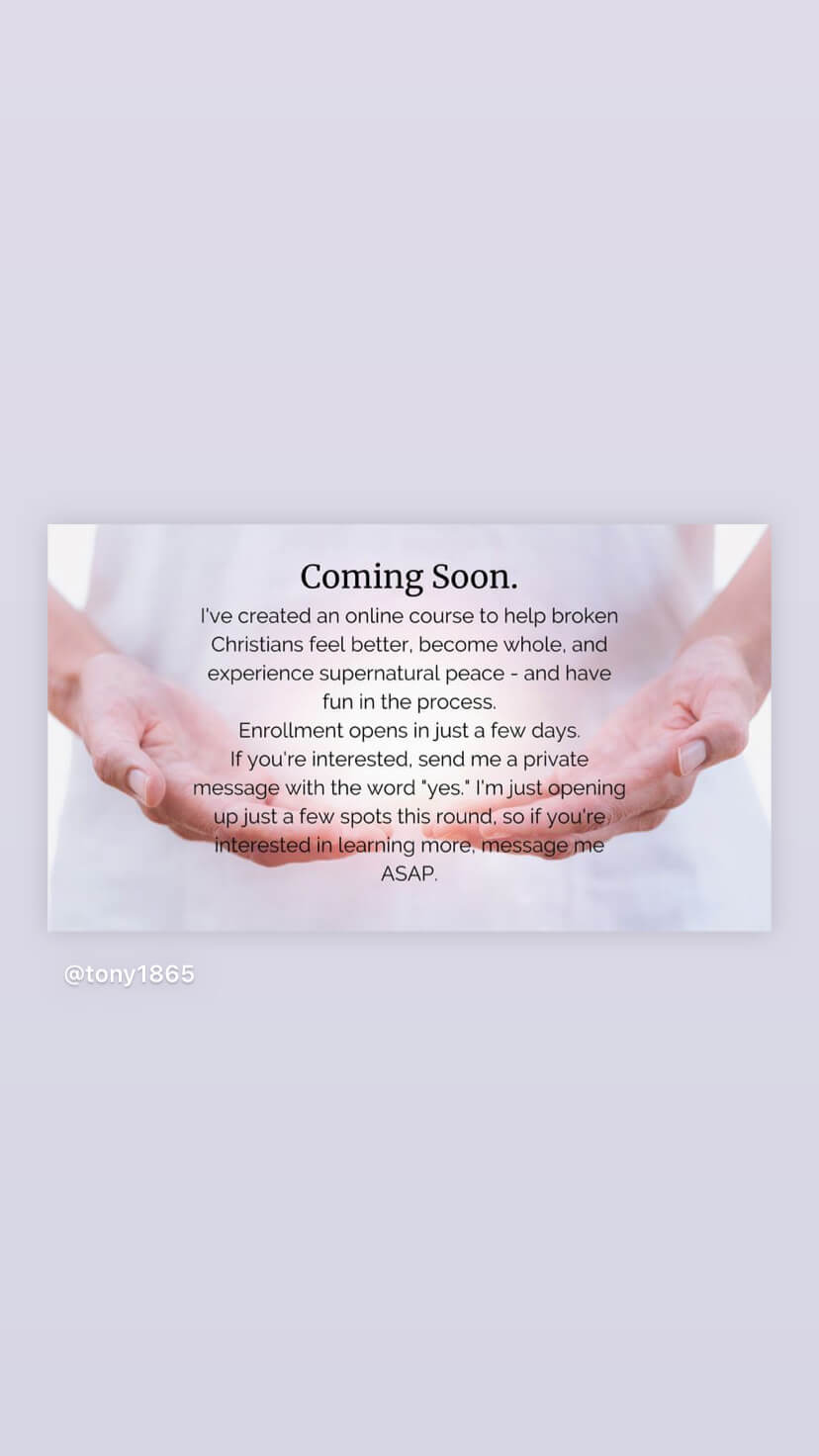Forgiving God.
Forgiving God may seem like an unusual concept in Christian theology. After all, isn’t God, who is perfect and sinless, the one who forgives us? However, when we feel anger, pain, or disappointment due to perceived unfairness in life, the process of ‘forgiving’ God can help us release negative emotions and realign our hearts with Him.
This blog grew out of a conversation I had just last night. I heard about a young lady who lost her mother, went through multiple pregnancies and abortions, substance abuse, the whole nine yards. Her attitude toward God was “why?” She blamed God for her mother’s death, and by inference blamed Him from everything else that was wrong. (She’s healed and whole now, so there is a very happy ending.)
Understandably, life often presents us with circumstances that appear unjust or unexplainable. In such instances, you might find yourself angry with God. Key point – it’s crucial to remember that God doesn’t need our forgiveness in the literal sense because He never sins or makes mistakes. Instead, when we talk about forgiving God, it’s about acknowledging our feelings of anger or betrayal, processing these emotions, and then releasing them, allowing ourselves to trust in God’s goodness and sovereignty once again.
When our expectations collide with reality, disappointment is a natural reaction. Often, this disappointment is directed towards people around us – loved ones, colleagues, or friends. But, at times, we might even feel disappointed with God, the omnipotent figure who, in our understanding, holds our lives in His hands. If you’re wrestling with these feelings, you’re not alone. Disappointment with God is a shared human experience and requires a compassionate, introspective, and grace-filled response.
It’s about adjusting our perspective, understanding that God’s wisdom transcends our human comprehension. Isaiah 55:8-9 says, “For my thoughts are not your thoughts, neither are your ways my ways,” declares the LORD. “As the heavens are higher than the earth, so are my ways higher than your ways and my thoughts than your thoughts.” God operates on a divine timeline and with an eternal perspective that we, as finite beings, can’t fully grasp.
So. How do we unpack all this? It’s heavy stuff, but I think there are some answers.

Firstly, it’s important to acknowledge that it’s okay to feel disappointed.
Christianity is not a faith of stoicism or indifference. Throughout the Bible, we encounter many instances of God’s people wrestling with feelings of disappointment, doubt, and despair. Job questioned God in his suffering, and David cried out in Psalms: “Why, O Lord, do you stand far away? Why do you hide yourself in times of trouble?” (Psalm 10:1). Even Jesus on the cross cried out, “My God, my God, why have you forsaken me?” (Matthew 27:46).
Feelings of disappointment with God are not indicators of weak faith; rather, they are evidence of an engaged, authentic relationship with God. Like any relationship, our bond with God involves emotional peaks and valleys. The key is to remember that it’s not about eliminating our feelings but understanding them.
Secondly, it’s crucial to bring your feelings to God.
God is a loving Father who cares deeply about your experiences, including your disappointments. Talk to Him, express your feelings, ask hard questions, just as David and Job did. It may seem counterintuitive, but sharing your disappointment with God is an act of trust. It means you believe He cares for you and understands your pain.
Next, let’s lean into His Word.
The Bible offers a vast array of perspectives on dealing with disappointment. There is the ever helpful Romans 8:28. Paul writes: “And we know that in all things God works for the good of those who love him, who have been called according to his purpose.” This verse is not a dismissal of our disappointment but a reminder that God’s perspective is eternal. Our present disappointments may be part of a larger plan we can’t yet perceive.
It’s also necessary to adjust our expectations.
God is not a genie to grant our every wish but a wise Father who knows what’s best for us. Some folks choke on this. Often, our disappointments stem from unmet expectations, which can sometimes be misguided. Another classic, Proverbs 3:5-6 advises, “Trust in the LORD with all your heart and lean not on your own understanding; in all your ways submit to him, and he will make your paths straight.” Letting go of our need to control outcomes can alleviate disappointment.
Finally, don’t hesitate to seek support from your Christian community.
Share your feelings with a trusted friend, pastor, or mentor. These individuals can provide you with perspective, comfort, and wisdom.
Remember, God’s love is steadfast, His plans are good, and His mercy is new every morning. Feeling disappointed with God doesn’t mean He has failed you. Instead, it’s an invitation to deepen your relationship with Him, to explore your faith more deeply, and to seek His comforting presence in your disappointment.
When we ‘forgive’ God, we’re not pardoning Him for a wrong He’s done. Instead, we’re acknowledging that our understanding is limited, and we’re choosing to trust Him. We are surrendering our perceived right to question His wisdom and fairness. In doing this, we open ourselves to His healing touch and restore our faith in His infinite wisdom and boundless love.
This journey of ‘forgiveness’ is not always easy and might require patience, prayer, and spiritual guidance. In these moments, remember Paul’s words in 2 Corinthians 12:9: “But he said to me, ‘My grace is sufficient for you, for my power is made perfect in weakness.’ Therefore, I will boast all the more gladly about my weaknesses, so that Christ’s power may rest on me.”
So, take heart. Your disappointment doesn’t disqualify you from God’s love; it draws you closer to His heart. Remember to engage honestly with your feelings, communicate openly with God, immerse yourself in His Word, align your expectations with His wisdom, and lean on your Christian community. In this journey, you will discover that even in disappointment, there’s a gift – the gift of God’s grace.
So, when we find ourselves wrestling with the concept of forgiving God, it’s not about finding fault in Him but about realigning our hearts with His. It’s a step towards healing, acceptance, and a deeper understanding of His unending grace.







 With my extraordinary gift of being able to torture a metaphor, here’s what I’m learning.
With my extraordinary gift of being able to torture a metaphor, here’s what I’m learning.
